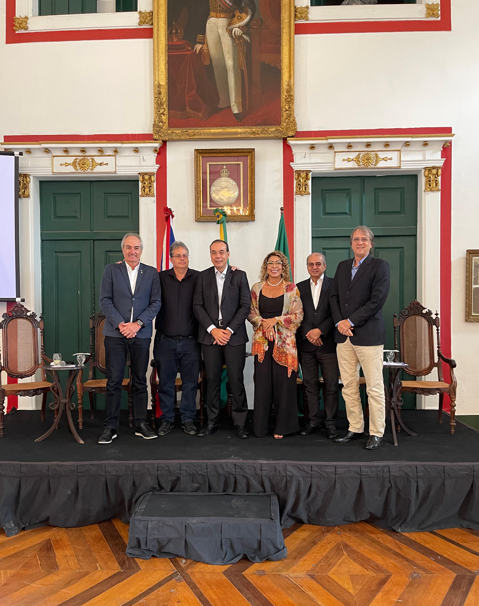Contributing to expanding access to the Our Culture collection, the Norberto Odebrecht Foundation (FNO) has just launched the digital...
FNO reinforces understanding of the economic impact of the Third Sector at “Dialogues that Transform” event
DATE: 11/06/2024
That non-governmental organizations (NGOs), foundations and other non-profit entities promote social good is common knowledge. But as well as playing a crucial role in building a fairer and more inclusive society, the Third Sector also makes an important economic contribution in Brazil.

The aim of the meeting was to discuss and expand the role of non-profit organizations in the economic development of Bahia and Brazil
According to a 2023 study by the Movement for a Culture of Giving, the sector is responsible for 4.27% of the country’s Gross Domestic Product (GDP). In practice, this represented around R$423 billion in 2022, as well as the creation of more than 6 million jobs. Their economic strength is equal to that of the agricultural sector, revealing the significant weight of these institutions in the Brazilian economy.
With the aim of enriching the public debate on these contributions, the Norberto Odebrecht Foundation (FNO), represented by its Sustainability and Partnerships manager, Cristiane Nascimento, took part on Wednesday (6) in a panel at the “Dialogues that Transform” event, promoted by the Bahia Commercial Association (ACB) in Salvador (BA).
The event, with the central theme “The impacts of the Third Sector on the economy of Bahia”, brought an approach that sought to inspire changes in the perception of the role of non-profit organizations. “Having this view of the Third Sector, connecting it to economic development, is very enriching and brings recognition, understanding and respect for what is actually done and how it can transform our society,” said Cristiane.
And indeed it does. The impact of PDCIS, the FNO’s social program aimed at sustainable territorial development, has had a 28% reduction in dependence on Bolsa Família for the beneficiaries it serves, contributing to the socio-productive inclusion of family farmers and the achievement of a right that should be everyone’s – that of a dignified life.
“PDCIS is a very comprehensive program, which has education as its basis and includes social, environmental and economic aspects,” said Cristiane. In 2023, R$21 million was invested in the program, which serves very small towns with a low Human Development Index (HDI) in rural Bahia. “This is very significant, because it strengthens the local economy, promoting emancipation, citizenship and the development of the territory,” he concluded, highlighting the tangible and intangible results of the FNO’s social program.
The “Dialogues that Transform” was mediated by Fábio Rocha, director of Damicos Consultoria, and featured recognized names within the Third Sector. Among the speakers were José Antônio Alves, head of the Santas Casas de Misericórdia da Bahia; Roberto de Sá Menezes, president of the Bahia Cancer Support Group (GACC-BA); José Carvalho, advisor to the Irmã Dulce Social Works (Osid); and Paulo Cavalcanti, president of the ACB and founder of the Paulo Cavalcanti Foundation.



No comments